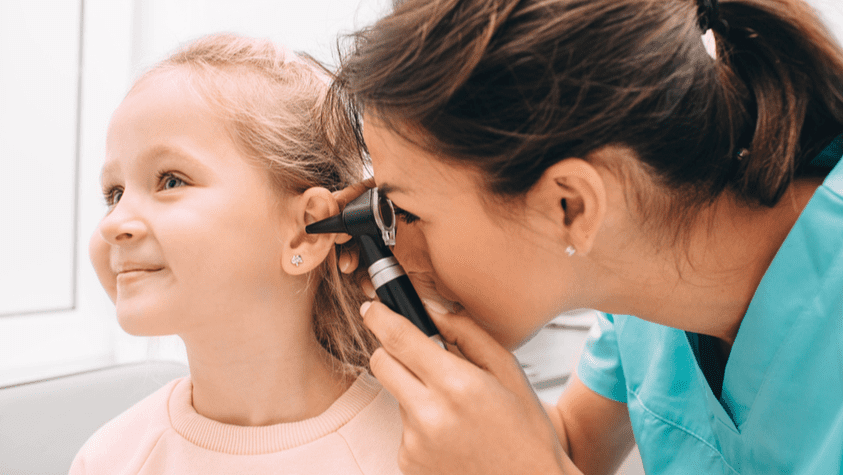
Highest Paying Nursing Jobs
Explore career profiles for the top 10 highest paying nursing jobs of 2023.
Certified Registered Nurse Anesthetist
Otorhinolaryngology is an area of medicine that focuses on illnesses and disorders of the head and neck, particularly the ears, nose, and throat. Medical professionals that specialize in this area are often referred to as ear, nose, and throat, or ENT professionals. Otorhinolaryngology nurses – or ear, nose, and throat nurses – provide a similar type of direct patient care.
What Is an Otorhinolaryngology Nurse?
An otorhinolaryngology nurse is a nursing professional that specializes in caring for patients with ear, nose, or throat problems. They often treat both acute and chronic problems in this area, including ear infections and allergies, as well as genetic abnormalities and injuries. Some other common otorhinolaryngology problems may include laryngitis, cancer, sinusitis, tonsillitis, sleep apnea, and trauma such as broken bones.
Otorhinolaryngology nurses treat all types of patients, including infants, children, and adults. However, as an otorhinolaryngology nurse, you can also choose to specialize in one area, such as pediatric otorhinolaryngology. You can also choose to focus on one particular type of problem in this field, such as nasal allergies.
The field of otorhinolaryngology is highly specialized and requires a deep knowledge of the ears, nasal passages, and throat, along with how these three areas interact with one another. You should also have effective communication skills, which will be necessary when explaining illnesses and treatment options to patients. Since many otorhinolaryngology patients are, in fact, children, you should also be able to interact with and communicate well with children in particular.
What Do Otorhinolaryngology Nurses Do?
Otorhinolaryngology nurses assess and treat patients suffering from illnesses or injuries in their ears, noses, and throats. Assessing patients generally involves performing a thorough physical examination. During an examination, an otorhinolaryngology nurse will listen to patient complaints and symptoms. They will also use tongue depressors, otoscopes, and various lights and mirrors to examine affected areas. You will also most likely need to be familiar with medical imaging machines, such as x-ray machines and CAT scan machines.
During the initial physical examination, you will look for signs of infection or injury in the patient. You will also record symptoms and vital signs, which can later be discussed with an otorhinolaryngologist to pinpoint a diagnosis. Collecting samples, such as mucus and discharge samples, is often an important step in diagnosing ear, nose, and throat infections.
Treatment for ear, nose, and throat disorders will typically vary, depending on the specific problem. Oftentimes, antibiotics can clear up infections. More severe problems, on the other hand, may require surgery. As an otorhinolaryngology nurse, you will most likely be required to assist during these surgical procedures and care for patients afterward.
Level Up Your Career
Where Do Otorhinolaryngology Nurses Work?
Otorhinolaryngology nurses primarily work in otorhinolaryngologist offices. However, some hospitals, clinics, community health centers, home care agencies, and assisted living facilities might also hire otorhinolaryngology nurses.
How to Become an Otorhinolaryngology Nurse
To become a certified otorhinolaryngology nurse, you must first have an unrestricted license to practice as a registered nurse (RN). Becoming a registered nurse involves earning a nursing degree from an accredited nursing school and passing the National Council Licensure Examination for Registered Nurses (NCLEX-RN).
Once you’ve gained at least three years of experience in a clinical otorhinolaryngology setting, you can then try for your otorhinolaryngology nursing certification, which is offered by the Society of Otorhinolaryngology and Head/Neck Nurses.








